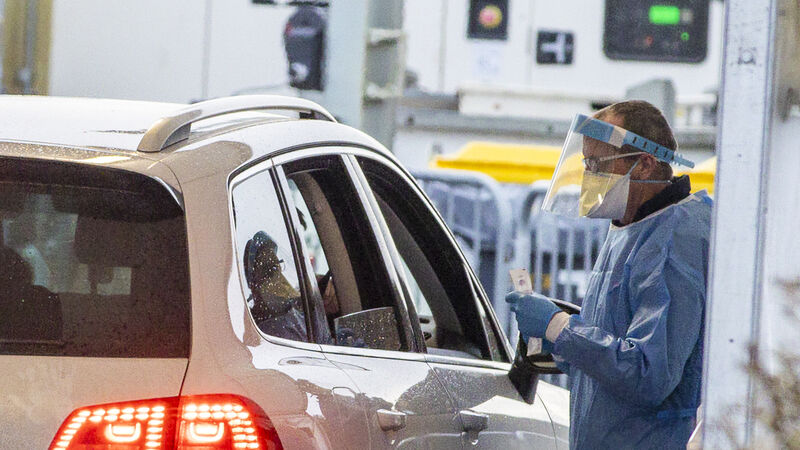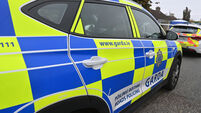Covid hospitalisations jump to 884 with Omicron cases 'substantially higher' than recorded

A worker at the Dundalk Stadium Covid-19 drive-through test centre. Picture: Liam McBurney/PA Wire
The number of people in hospital with Covid-19 has jumped to 884, up from 804 on Monday.
The latest figures were revealed via the Government’s Covid-19 Data Hub.










